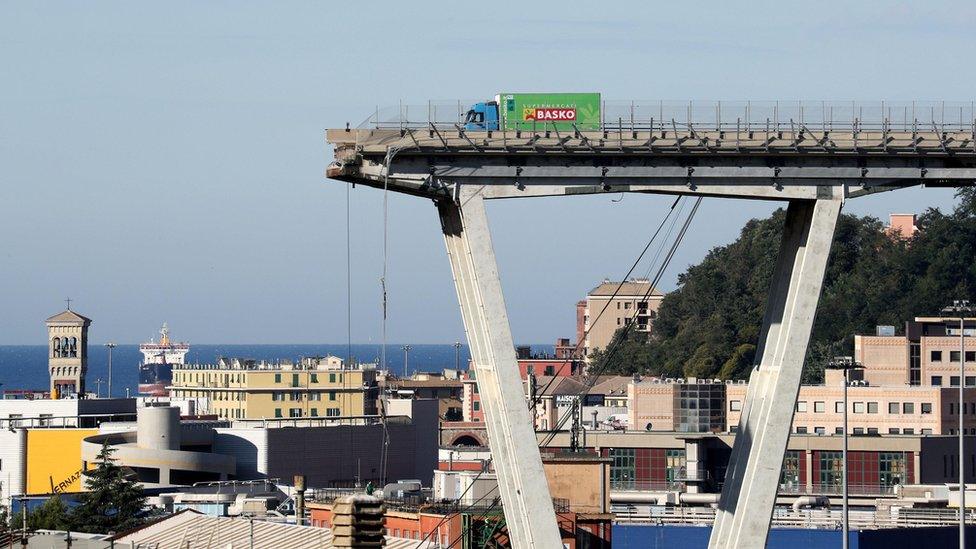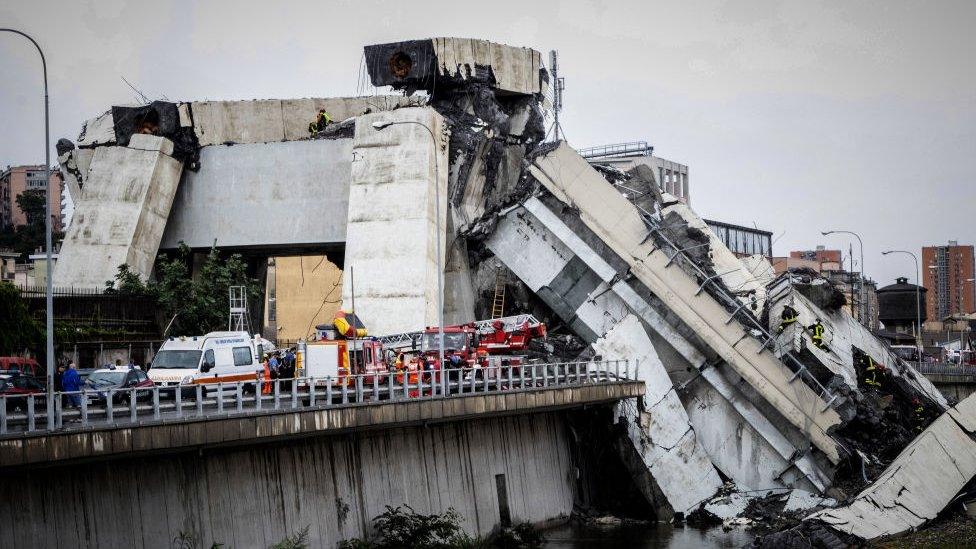Genoa bridge disaster: Risk of collapse 'was known for years'
- Published

A stretch of 200m of the Morandi bridge collapsed in heavy traffic in August 2018
An Italian trial into the 2018 Genoa bridge disaster that killed 43 people has heard it was known for years there was a risk it might collapse.
"I didn't do anything and it's my greatest regret," said Gianni Mion, a former highways company boss in charge of the bridge and its maintenance.
Dozens of vehicles plunged 45m (150ft) when the Morandi bridge collapsed in heavy rain in August 2018.
Mr Mion said the risk was raised at a meeting eight years before the tragedy.
"It emerged that the bridge had an original design defect and that there was a collapse risk," he told the trial investigating what caused a 200m stretch of highway to break off from the bridge.
Fifty-nine people face an array of charges, ranging from multiple manslaughter to making false statements. They have all denied any wrongdoing.
Gianni Mion told the trial that he had asked in 2010 if someone could certify the bridge's safety. He said that Riccardo Mollo, who at the time was General Manager of Autostrade per l'Italia (Aspi), replied: "there's the self-certification".
"I didn't understand the meaning of that answer; I thought it was nonsense. I should have done something about it, but I didn't," Mr Mion said, adding it was his greatest regret that he had not followed it up.


The Morandi bridge, which is part of a key highway between Italy and France, collapsed on the eve of Ferragosto - a major summer holiday in Italy when Roman Catholics celebrate the Assumption of Mary.
Survivors described how, as they were driving, they felt the odd sensation of their cars lifting at the front before nosediving into a 45m abyss. Cars were battered by rubble and crushed under concrete as they fell.
Giuseppe Conte, who was prime minister at the time, said the accident was "unacceptable in modern society".
The tragedy highlighted the state of Italy's deteriorating transport infrastructure.
Mr Mion's testimony will have a big impact on the ongoing trial. It confirms that the Morandi bridge required radical renovation, and maybe even demolition.
Explaining why he had stayed silent, he said he was afraid he could lose his job and his position of power and prestige at the helm of one of Italy's major industrial companies.
The remains of the bridge were demolished and another viaduct, designed by architect Renzo Piano, opened in August 2020 to take its place.
The architect, also known for the Shard in London and the Pompidou in Paris, is a native of Genoa. He designed the new bridge as a gift to the city.

Dozens of vehicles were crossing the Morandi bridge when it collapsed
